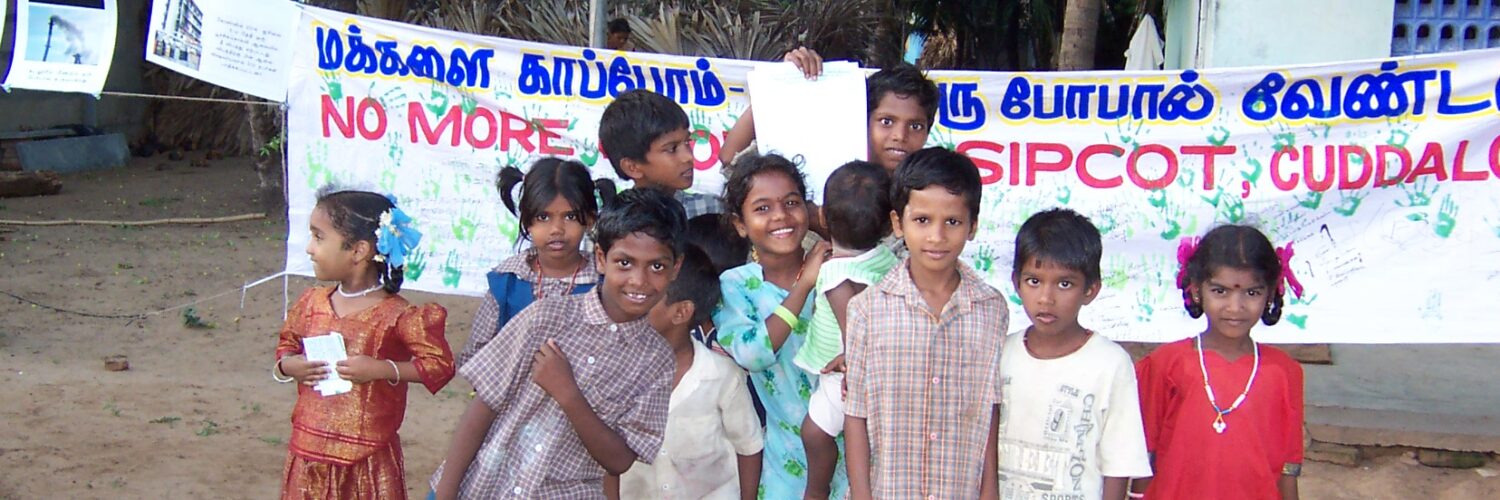PRESS RELEASE
6th August 2015
While welcoming Unilever CEO Paul Polman’s tweet expressing his determination to address the issues in Kodaikanal, Chennai Solidarity Group said Unilever needs to shed its double standards with respect to environmental remediation for the matter to be resolved expeditiously. Unilever is putting pressure on Tamil Nadu Pollution Control Board (TNPCB) to approve contaminated soil clean-up to a standard that is 25 times weaker than the standard in the United Kingdom where the company is headquartered. We would like Indians to be treated at par with the British. Unilever should stop pressuring TNPCB to adopt a diluted standard and allow for a science-based transparent remediation, said Nityanand Jayaraman of Chennai Solidarity Group.
Meanwhile, public mobilisatoin group Jhatkaa.org said their petition has attracted more than 50,000 people to support their cause. We intend to mobilise these supporters for future actions to ensure a fair deal for workers and the environment, said Rachita Taneja, campaigner at Jhatkaa.org
Unilever’s claim that clean-up is being held back by the TNPCB’s failure to issue a consent hides the dispute over the proposed clean up standards. Unilever is proposing a standard of 25 mg of mercury per kg of soil (mg/kg) and are claiming that this standard will leave it safe for future residential and recreational purposes. However, environmenalists say that residential standards are not sufficient as the site is located within an ecologically sensitive area. The factory site is ecologically and geographically contiguous with the Pambar Shola Reserved Forest. In the United States, the Government has forced polluters to clean up to levels as low as 0.13 mg/kg in the case of Custom Plywood Site in Washington state.
A June 2015 study found high levels of mercury in vegetation and sediment collected from the Pambar Shola. The study confirms that Unilever’s contaminated site is leaking mercury into its surroundings, including into the ecologically sensitive Pambar Shola and the Pambar River. The Pambar River empties into the Vaigai Dam after Periakulam. Mercury builds up to dangerous levels in the aquatic food chain and can harm fish consumers. Mercury is a potent neurotoxin that can damage the kidneys, brain and cause birth defects.
Activists also point out that till date the TNPCB has not commissioned a single study to assess the extent of contamination. All studies so far have been commissioned, paid for and prepared for Unilever. Highlighting the case of Bhopal, where Union Carbide did a substandard remediation and handed over a contaminated site to the Government in 1996, activists warned the TNPCB that if a scientific and thorough remediation is not done, the Government will be saddled with a liability on their hands.
Activists and local residents have said they’re keen to work with the TNPCB to ensure that Tamil Nadu does not become a victim of Unilever’s environmental racism.For more information, visit: kodaimercury.org
Rachita Taneja, Jhatkaa.org: 7760052603
Nityanand Jayaraman, Chennai Solidarity Group: 9444082401
